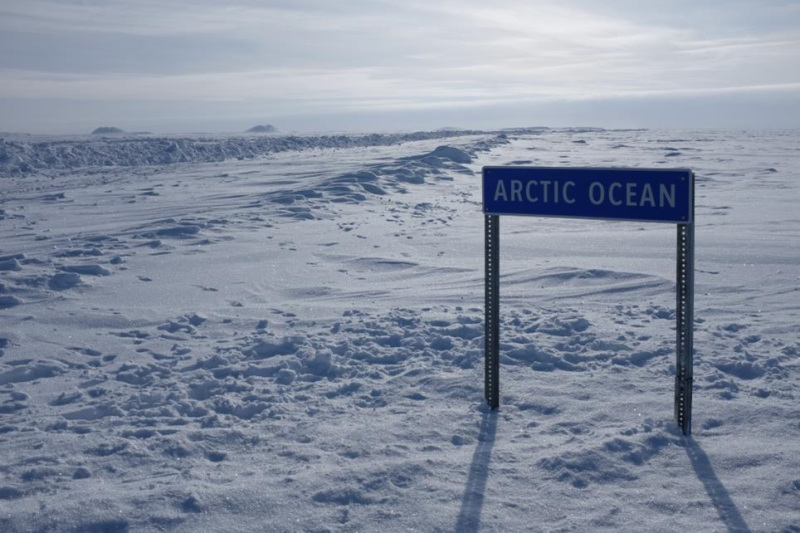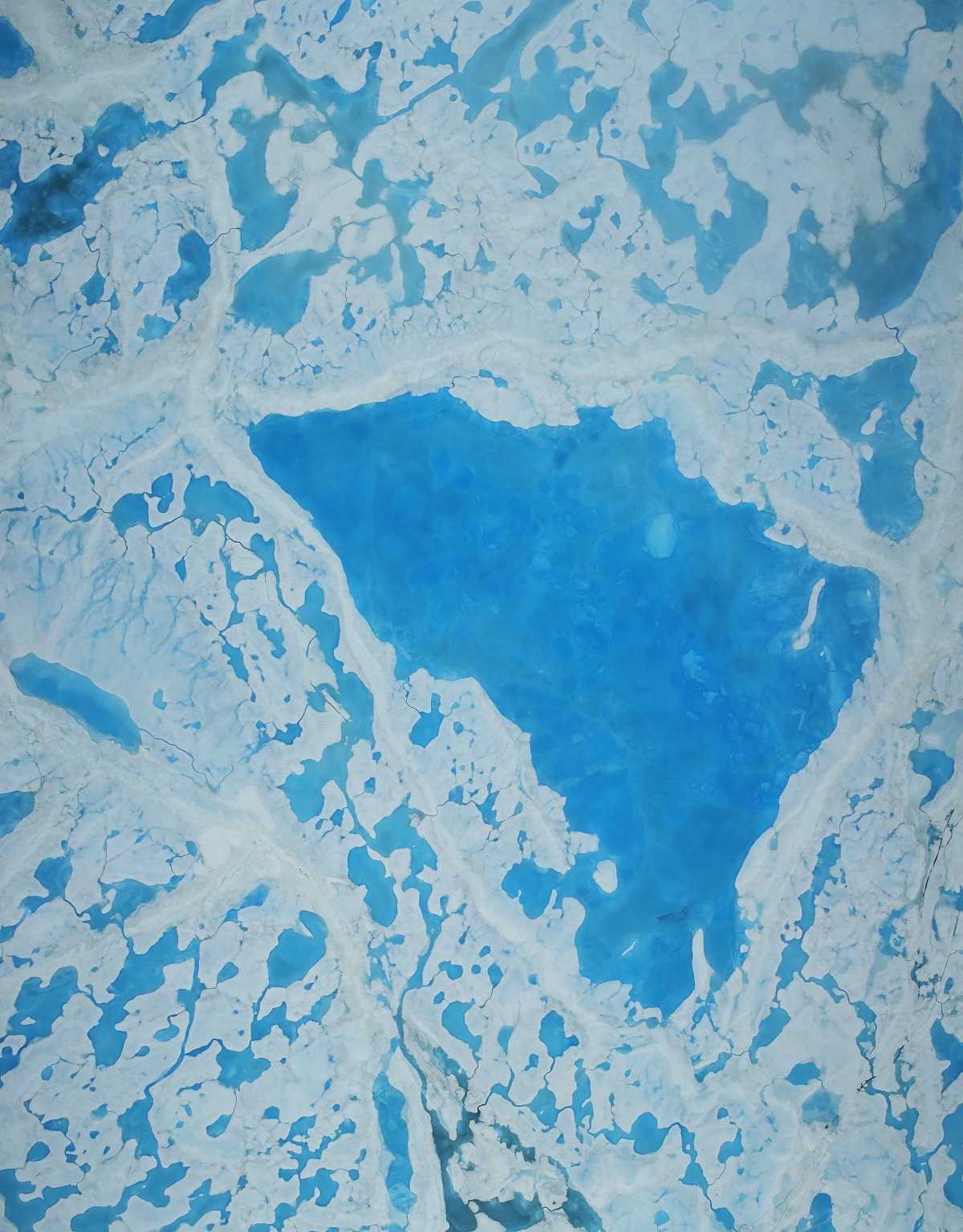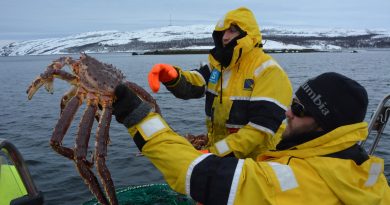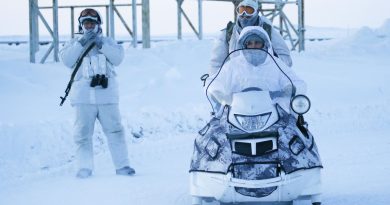Blog: China, Japan and South Korea hold dialogue on the Arctic

A little over four years ago, as several Asian countries were vying for observer status in the Arctic Council, there was some concern over what might happen if they were not admitted. Shut out from the region’s preeminent intergovernmental body, would China, Japan, South Korea, Singapore, and India discuss their interests in the Arctic elsewhere, in a forum like the United Nations or the International Maritime Organization? Might they even talk about the Arctic at a conference like the Arctic Circle, which, though based in Iceland, strongly promotes a global envisioning of the Arctic?
These fears were cast aside when the five Asian countries and Italy gained observer status at the Kiruna Arctic Council Ministerial in 2013. However, certain observers like China have been less than thrilled with arrangements in the Arctic Council. Observers, after all, are meant to more or less just watch proceedings. They do not speak unless asked, and though they are expected to contribute to the activities of the Arctic Council, they can never really spearhead initiatives. Observers’ financial contributions for any one project can never total more than 50% of all funding.
Partly in reaction to the strictures of the Arctic Council and partly a reflection of growing synergies between the East Asian countries, last week, Tokyo hosted the Second Trilateral High-Level Dialogue on the Arctic. The meeting involved Japan’s Arctic Ambassador, Ms. Kazuko Shiraishi, China’s Special Representative for Arctic Affairs, Mr. Gao Feng, and South Korea’s Arctic Ambassador, Mr. Kim Young-jun.
The trilateral dialogue, which follows on the prior one held in Seoul last year, emerged out of the Joint Declaration for Peace and Cooperation in Northeast Asia (PDF) issued in November 2015. The declaration gave renewed impetus to regional trust-building and trilateral cooperation following a three-and-a-half year hiatus caused by various political disagreements between the three countries. It lists many points of possible cooperation including nuclear safety, North Korea, the green economy, and, buried somewhere in the middle, the Arctic. Point 34 reads: “Acknowledging the global importance of Arctic issues, we will launch a trilateral high-level dialogue on the Arctic to share Arctic policies, explore cooperative projects and seek ways to deepen cooperation over the Arctic.”

Fast forward to June 8, 2017, when Tokyo successfully hosted the second trilateral dialogue on the Arctic. At the meeting, the three officials and other research associates from Asian institutions working on the Arctic gave presentations on each country’s policy in the Arctic, related challenges, and the potential for cooperation between Japan, China, and South Korea in the region. The three Northeast Asian countries also agreed to conduct a joint study to assess pollution and climate impacts in the Arctic, largely in the oceans rather than on land. This study, along with the perspectives contained within the joint statement released following the dialogue, reflects distinct efforts on behalf of the three Asian countries to frame the Arctic at a global scale and as a maritime region. Both efforts help to legitimize Asian involvement in the Arctic by undermining the importance of land, sovereign territory, and national and regional boundaries. The opening paragraph of the joint statement reads:
Here, Japan, China, and South Korea are trying to have their cake and eat it, too. The three countries pay lip service to the vulnerabilities of local and indigenous peoples in the Arctic while also claiming that these vulnerabilities exist “on a global scale.”
Additionally, two of the three opportunities that the dialogue mentions are maritime-based: marine fisheries and shipping routes. All three Northeast Asian countries have sizable deep-water fishing fleets, a reason that law professor Erik Molenaar claims is why they, along with Iceland and the European Union, were invited by the five Arctic coastal states to participate in the December 2015 Washington Meeting on High Seas Fishing in the Central Arctic Ocean.
Japan, China, and South Korea don’t just claim to seek resources. The next sentence in the joint statement argues,

The three countries clearly see the marine environment as a legitimate space for them to exert influence in line with a “rule-based maritime order,” generally taken to be the United Nations Convention on the Law of the Sea (UNCLOS). Cleverly, the three countries parrot language from the controversial Ilulissat Declaration in 2008, which was an attempt by the five Arctic coastal states to solidify their control and authority over matters of Arctic governance. In that declaration, the U.S., Canada, Russia, Norway, and Denmark proclaimed, “This framework provides a solid foundation for responsible management by the five coastal States and other users of this Ocean through national implementation and application of relevant provisions.” Whereas the Arctic Five emphasize the national oversight allowed by UNCLOS, however, the Asian countries underscore the rights and responsibilities of the international community in the world’s oceans provided by the same treaty.
China, Japan, and South Korea also announced that they would report discussions held during the dialogue to the Arctic Council, again trying to place nice with the right people. The Asian countries have come a long way from the days when Rear Admiral Yin Zhuo of China’s People’s Liberation Army declared in 2010, “The Arctic belongs to all the people around the world as no nation has sovereignty over it.” While the idea of the Central Arctic Ocean as a global commons still motivates a great deal of Asian involvement in the region, the language the Asian countries use to justify their presence is now more careful and measured so that their participation is not perceived as undue interference.
Sometime next year, China will host the third Trilateral High-Level Dialogue on the Arctic. In a way, then, perhaps the Arctic Council’s worries from a few years back that the Asian countries would sidestep the body are slowly coming true. Even though China, Japan, and South Korea are reporting their discussions to the Arctic Council, important discussions about the Arctic are taking place in a venue outside of the control of sovereign Arctic states – and without any of their participation or even mere observation.
If the trilateral dialogue ever expands to include other non-sovereign actors – for instance, if South Korea, which is continuing to enhance its cooperation with indigenous peoples’ organizations in the Arctic, decided to invite the Aleut International Association to next year’s meeting – this likely wouldn’t go down very well with the Arctic Council. Then, the body may have to seriously reconsider the role of observers lest other restless ones like the United Kingdom, Spain, and newly admitted Switzerland start forming their own separate dialogues on a region that it seems more and more countries on Earth see as part of their own watery backyard.
This post first appeared on Cryopolitics, an Arctic News and Analysis blog.
Related stories from around the North:
Canada: Arctic Council ministerial – View from Canada, Eye on the Arctic
Denmark: Arctic sea ice – Is the minimum maximum the new normal?, blog by Irene Quaile, Deutsche Welle
Finland: Arctic Council ministerial – View from Finland, Yle News
Iceland: Meeting in Iceland discusses banning unregulated Arctic fishery, Radio Canada International
Norway: Norway and Finland talk Arctic with China, The Independent Barents Observer
Russia: Arctic Council ministerial – View from Russia, Eye on the Arctic
Sweden: Sweden’s glaciers are melting away, Radio Sweden
United States: Trump’s alternative reality? No warming, cool oceans, intact coral, Blog by Irene Quaile, Deutsche Welle




